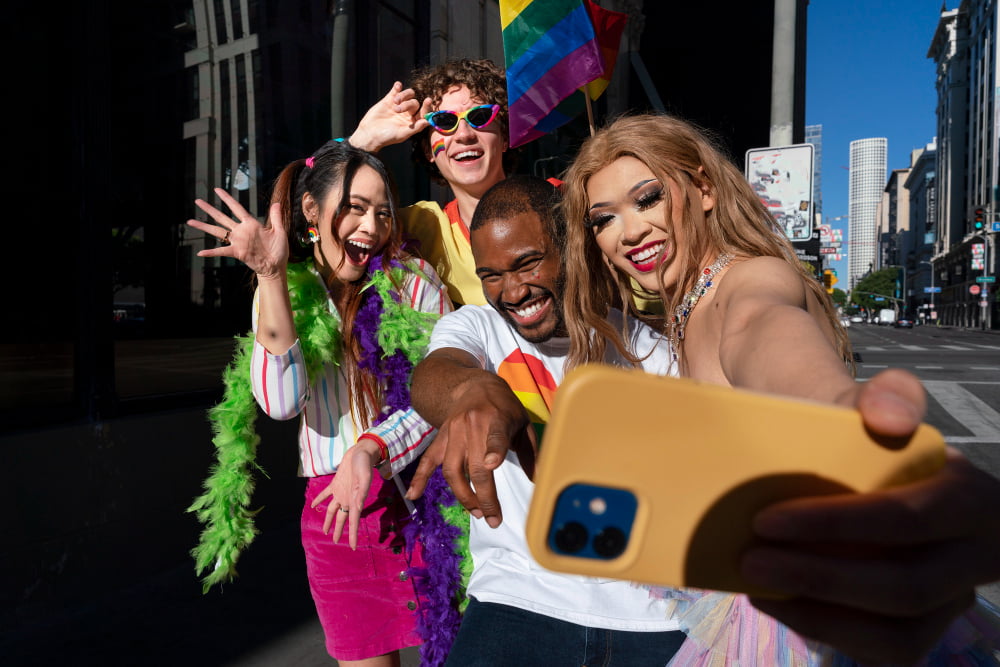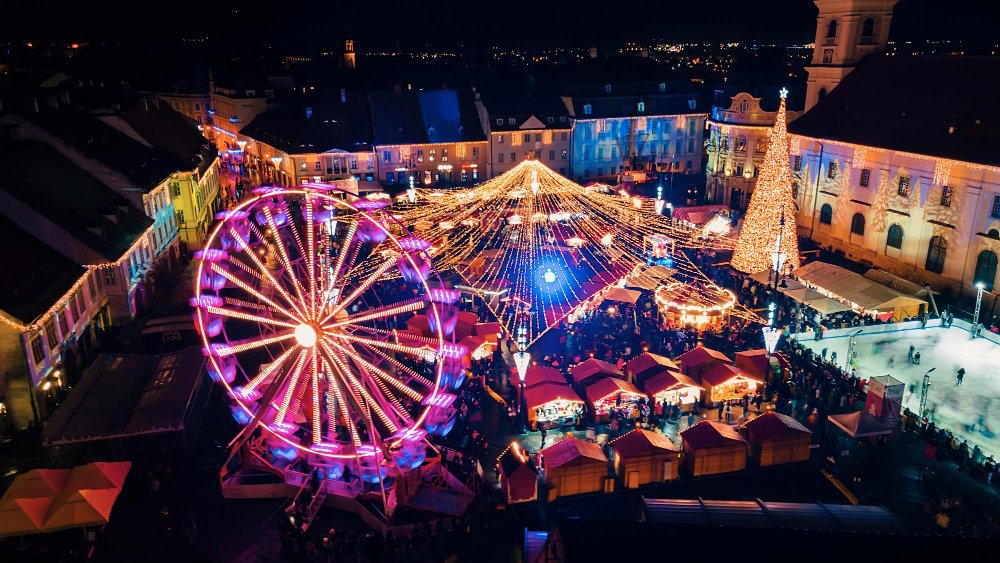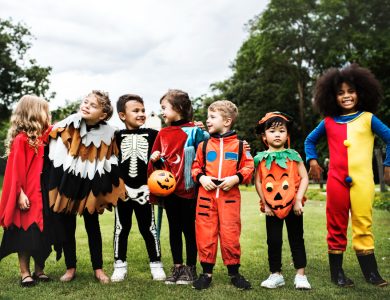9 Ultimate Cultural Event Ideas for a Rich Experience

Are you looking to infuse your next gathering with cultural richness and diversity? Cultural event ideas can transform any occasion into a memorable and educational experience, whether it’s for a community celebration, a school event, or a creative fundraising effort.
Feeling overwhelmed by the sheer number of possibilities? Don’t worry, you’re not alone. Many event planners struggle to find unique cultural event ideas that truly stand out and engage their audience. The good news is, we’ve done the hard work for you. Our list of nine cultural event ideas will spark your creativity and ensure your event is both fun and meaningful.
From vibrant festivals to interactive workshops, these ideas cater to all age groups and interests. Whether you’re organizing a small community gathering or a large school event, these cultural event ideas are sure to leave a lasting impression.
Memorable Cultural Event Ideas to Ignite Fun
Discover the secrets to creating an unforgettable cultural event with our immersive ideas. From traditional festivals to modern art exhibits, our list of engaging cultural event ideas will help you captivate your audience. Whether you’re planning cultural event ideas for corporate events, conferences, or festivals, these memorable cultural event ideas are designed to provide a rich experience that leaves a lasting impact. Let’s explore these dynamic and cultural event ideas that will elevate any occasion.
Host a Traditional Food Festival
Celebrate the culinary heritage of different cultures by organizing a traditional food festival. This event offers a fantastic opportunity to explore traditional food festival ideas and engage your community through the universal language of food. International food festival ideas can include featuring authentic dishes from around the world, allowing attendees to savor diverse flavors and traditions in one vibrant setting.
To make your festival even more engaging, incorporate cooking demonstrations and interactive food-tasting sessions. These activities not only entertain but also educate attendees about the ingredients and techniques unique to each cuisine. Inviting local chefs and food experts adds a layer of authenticity and expertise, as they can share the fascinating stories and cultural significance behind each dish. This makes your event more than just a feast, it’s a cultural journey.
For those new to organizing such events, there are plenty of food festival ideas for beginners to ensure a smooth and successful experience. Start with a few key cuisines and gradually expand as you gain more experience. Consider unique food festival ideas like themed nights or fusion dishes that blend different culinary traditions, adding an innovative twist to the celebration.
Incorporating these cultural event ideas into your festival not only highlights the richness of global cuisines but also fosters a sense of community and cultural appreciation among attendees. A well-planned cultural food festival can leave a lasting impression, making it a memorable highlight for everyone involved.
Organize a Cultural Fair
Bring together various cultural communities by hosting a vibrant cultural fair. This event can be an enriching experience for all ages, especially when tailored to your audience with thoughtful cultural fair ideas for schools or the broader community. Setting up booths that showcase traditional crafts, clothing, music, and dance performances from different cultures can create an engaging and educational environment.
Incorporate a variety of cultural fair booth ideas that allow attendees to experience different aspects of each culture firsthand. From displaying intricate beadwork and textiles to demonstrating musical instruments and traditional dances, these booths can become the heart of your fair. To make your event more interactive, offer workshops where attendees can learn traditional skills such as pottery, weaving, or calligraphy. These activities not only entertain but also foster a deeper appreciation for diverse cultural practices.
Effective cultural fair event planning also involves thoughtful cultural fair decorations that reflect the uniqueness of each culture represented. Use vibrant colors, traditional patterns, and cultural symbols to create an immersive atmosphere. This attention to detail helps attendees feel transported to different parts of the world as they navigate through the fair.
To ensure your cultural fair is a success, include a variety of cultural fair activities that cater to different interests and age groups. Whether it’s storytelling sessions, traditional games, or culinary tastings, these activities can engage attendees and provide a holistic cultural experience. By incorporating these elements, your cultural fair will be a memorable event that celebrates diversity and fosters community spirit.
Create an Art and Craft Exhibition
Curate an exhibition featuring traditional and contemporary artworks and crafts from different cultures. This approach to art and craft exhibition ideas allows attendees to appreciate the diversity and richness of global art forms. Display a variety of pieces, including paintings, sculptures, textiles, and other crafts, ensuring each item comes with detailed descriptions that educate visitors about its cultural significance and history.
Incorporating cultural art exhibition ideas into your event can transform it into an immersive educational experience. Highlight the unique stories and traditions behind each artwork, helping attendees develop a deeper understanding and appreciation for the cultures represented. This can be particularly impactful when combined with live art demonstrations, where artists create their work on-site. Such interactions can engage and inspire visitors, making the exhibition more dynamic and memorable.
When planning your exhibition, consider diverse art exhibition themes that resonate with your audience and the cultural narratives you wish to convey. International art exhibition ideas can add a global dimension to your event, attracting a broader audience and fostering cross-cultural connections.
Effective art exhibition marketing is crucial to attract visitors and ensure the success of your event. Utilize social media, local press, and community networks to spread the word. Highlight key attractions, such as live demonstrations and unique art pieces, to generate interest and excitement. By thoughtfully curating and promoting your exhibition, you can create a compelling cultural event that celebrates artistic diversity and educates your audience.
Host a Music and Dance Festival
Celebrate the rich musical and dance traditions from around the world by organizing a music and dance festival. This event can bring together diverse music and dance festival ideas to create an unforgettable experience for attendees. Featuring performances by both local and international artists, you can showcase a variety of genres and styles, highlighting the unique cultural expressions of different communities.
Incorporate cultural music festival ideas that emphasize the historical and cultural significance of the music and dance forms presented. Whether it’s traditional folk music, classical performances, or contemporary fusion, each act can provide a glimpse into the heritage of the culture it represents. To make your festival more interactive, include dance workshops where attendees can learn traditional dance steps and rhythms. These sessions not only engage participants but also offer a hands-on understanding of the cultural context.
When planning how to organize a music festival, pay attention to music festival themes that can tie the event together cohesively. Themes like “Global Rhythms” or “Traditions in Motion” can help focus the festival’s narrative and attract a target audience interested in cultural exploration.
Effective music festival marketing is essential to draw in crowds and create buzz around your event. Use social media, local advertising, and partnerships with cultural organizations to promote your festival. Highlight key performances and unique workshop opportunities to generate excitement and interest.
By combining these cultural event ideas with strategic planning and marketing, your music and dance festival can become a vibrant celebration of global traditions, fostering cultural appreciation and community spirit among attendees.
Screen International Films
Organize a film festival dedicated to showcasing international cinema to celebrate and explore global cultures. Curating international film festival ideas can include selecting films that highlight different traditions, social issues, and unique cultural narratives. This approach not only entertains but also educates audiences about the diverse experiences and stories from around the world.
Incorporating cultural film festival ideas can make your event more engaging and insightful. Host panel discussions featuring filmmakers, critics, and cultural experts to provide deeper context and understanding of the films and the cultures they represent. These discussions can enrich the viewing experience, offering attendees a more profound appreciation of the cinematic works.
When considering how to plan a film festival, it’s essential to think about film festival themes that resonate with your audience and the message you want to convey. Themes such as “Voices of the World” or “Cultural Reflections” can guide your film selection and marketing strategy, creating a cohesive and compelling festival narrative.
Effective film festival marketing is crucial to attract a diverse audience. Utilize social media, partnerships with cultural institutions, and local press to promote your event. Highlight unique aspects such as exclusive screenings, panel discussions, and interactive sessions to generate excitement. Additionally, a film festival call for entries can invite filmmakers from around the world to submit their work, ensuring a diverse and high-quality selection of films.
By thoughtfully planning and promoting your international film festival, you can create an enriching cultural event that fosters understanding and appreciation of global cinema and traditions.

Offer Cultural Storytelling Sessions
Engage attendees with captivating storytelling sessions featuring folk tales, legends, and myths from various cultures. These cultural storytelling event ideas can create a rich tapestry of narratives that fascinate and educate. Invite professional storytellers, authors, and cultural representatives to share their stories, adding depth and authenticity to the event. Enhancing the experience with traditional music or visual aids can make the tales more vivid and memorable.
Understanding how to host a storytelling event involves creating a cozy, intimate setting that encourages audience connection. Arrange comfortable seating and soft lighting to set the mood, making attendees feel part of a close-knit gathering. This ambiance is crucial for fostering a deeper engagement with the stories being told.
Tailoring your event with specific storytelling event themes can further enrich the experience. Themes like “Myths and Legends” or “Folk Tales from Around the World” can guide the selection of stories and storytellers, ensuring a cohesive narrative thread throughout the event.
Effective storytelling event marketing is essential to attract both children and adults. Utilize social media, local community boards, and partnerships with schools and libraries to promote the event. Highlight the unique aspects, such as the involvement of professional storytellers and interactive elements, to draw interest. Offering sessions tailored to different age groups, like a storytelling event for kids and another for adults, can help cater to diverse audiences, ensuring a broad appeal.
By thoughtfully planning and marketing your storytelling sessions, you can create an immersive cultural experience that leaves a lasting impact on all who attend.
Organize Cultural Workshops
Provide hands-on workshops where attendees can learn traditional crafts, cooking, music, or dance. These cultural workshop ideas offer an engaging way for participants to immerse themselves in different cultural practices. Offering a variety of workshops that cater to different interests and skill levels ensures that everyone, from beginners to advanced learners, can find something enjoyable and educational.
Understanding how to organize a workshop involves careful planning and collaboration. Partner with cultural organizations and experts to ensure the authenticity and quality of the workshop content. This collaboration not only enhances the learning experience but also supports the cultural community by highlighting their expertise and traditions. Whether it’s learning the intricate art of pottery, the steps of a traditional dance, or the secrets of authentic cuisine, these workshops provide a genuine cultural learning experience.
Selecting appropriate workshop themes can guide the structure and content of your sessions. Themes such as “Traditional Crafts,” “Global Culinary Adventures,” or “Cultural Rhythms” can help focus your workshops and attract specific audiences. Tailoring your themes to the interests of your target audience can make your workshops more appealing and successful.
Effective workshop marketing is crucial to attract participants. Utilize social media, local advertising, and community partnerships to spread the word. Highlight the unique and interactive nature of your workshops, emphasizing the hands-on learning opportunities and the chance to gain new skills. Promoting the credentials and backgrounds of your instructors can also add credibility and appeal.
By offering in-person cultural workshops, you create an opportunity for attendees to connect with different cultures in a meaningful and interactive way, making your event a memorable and enriching experience.
Host a Cultural Parade
Celebrate cultural diversity with a lively cultural parade. This event offers a vibrant platform for showcasing the rich heritage of different communities through cultural parade ideas. Invite community groups to participate, each presenting their unique traditions with traditional costumes, music, and dance. Such a parade not only highlights cultural differences but also fosters unity and appreciation among participants and spectators alike.
Understanding how to organize a parade involves meticulous planning and coordination. Start by reaching out to local cultural organizations and community groups to gauge interest and secure participants. Collaboration with these groups ensures authenticity and helps in organizing traditional performances and cultural parade costumes that truly represent each culture’s heritage.
Selecting engaging parade themes can add a cohesive element to the event. Themes like “Global Harmony” or “Traditions on Parade” can provide direction for the participants and help in creating a unified message for the parade. Themes can also guide the design of floats, decorations, and performances, making the event more visually appealing and organized.
Effective parade marketing is crucial for drawing a large audience. Utilize social media, local news outlets, and community boards to promote the event. Highlight key attractions such as vibrant costumes, live performances, and unique cultural displays. Encourage local businesses to participate and support the event, which can also aid in funding and resources.
By implementing these community parade ideas, you can create a festive atmosphere with colorful decorations, interactive floats, and engaging performances along the parade route. This not only makes for an enjoyable event but also reinforces community bonds and celebrates cultural heritage in a joyful, inclusive manner.
Create an Interactive Cultural Museum
Designing an interactive museum experience offers a unique opportunity for visitors to explore different cultures in depth. These interactive museum exhibit ideas engage the senses and imagination, providing a dynamic platform for learning and discovery. Incorporate a variety of elements, including interactive displays, multimedia presentations, and virtual reality experiences, to bring cultural traditions and histories to life.
Understanding how to create an interactive museum involves careful planning and creativity. Start by selecting museum exhibit themes that resonate with your audience and the cultural narratives you wish to convey. Themes like “Crossroads of Culture” or “Global Perspectives” can guide the design and content of your exhibits, ensuring a cohesive and compelling experience for visitors.
Incorporating effective museum exhibit marketing strategies is essential to attract visitors and generate interest. Utilize social media, email newsletters, and partnerships with local organizations to promote your museum. Highlight the unique interactive elements and educational opportunities offered by your exhibits to entice potential visitors.
Providing educational materials and guided tours can further enhance the learning experience for visitors. Offer informative panels, audio guides, and hands-on activities that encourage exploration and discovery. By promoting cultural understanding and appreciation, your interactive cultural museum becomes not only a source of entertainment but also a valuable educational resource for the community.
By implementing these cultural event ideas and creating an interactive cultural museum, you can offer visitors a memorable and enriching experience that fosters cultural understanding and promotes global citizenship.
Read this also: Top 12 Social Event Ideas for Maximum Fun
Conclusion
In conclusion, these nine cultural event ideas offer a diverse array of immersive experiences for communities, schools, and fundraisers alike. From food festivals to interactive workshops and parades, each idea fosters cultural appreciation and understanding. By embracing these enriching opportunities, event organizers can create memorable gatherings that celebrate diversity, educate participants, and strengthen community bonds.
Let these ideas inspire your next cultural event, where every moment is infused with richness, creativity, and meaningful connections.
Platforms like Eventbrite can help you list your event, sell tickets, and manage registration. You can use online design tools like Canva to create eye-catching promotional materials, posters, and social media graphics that showcase the vibrant nature of your fair.



